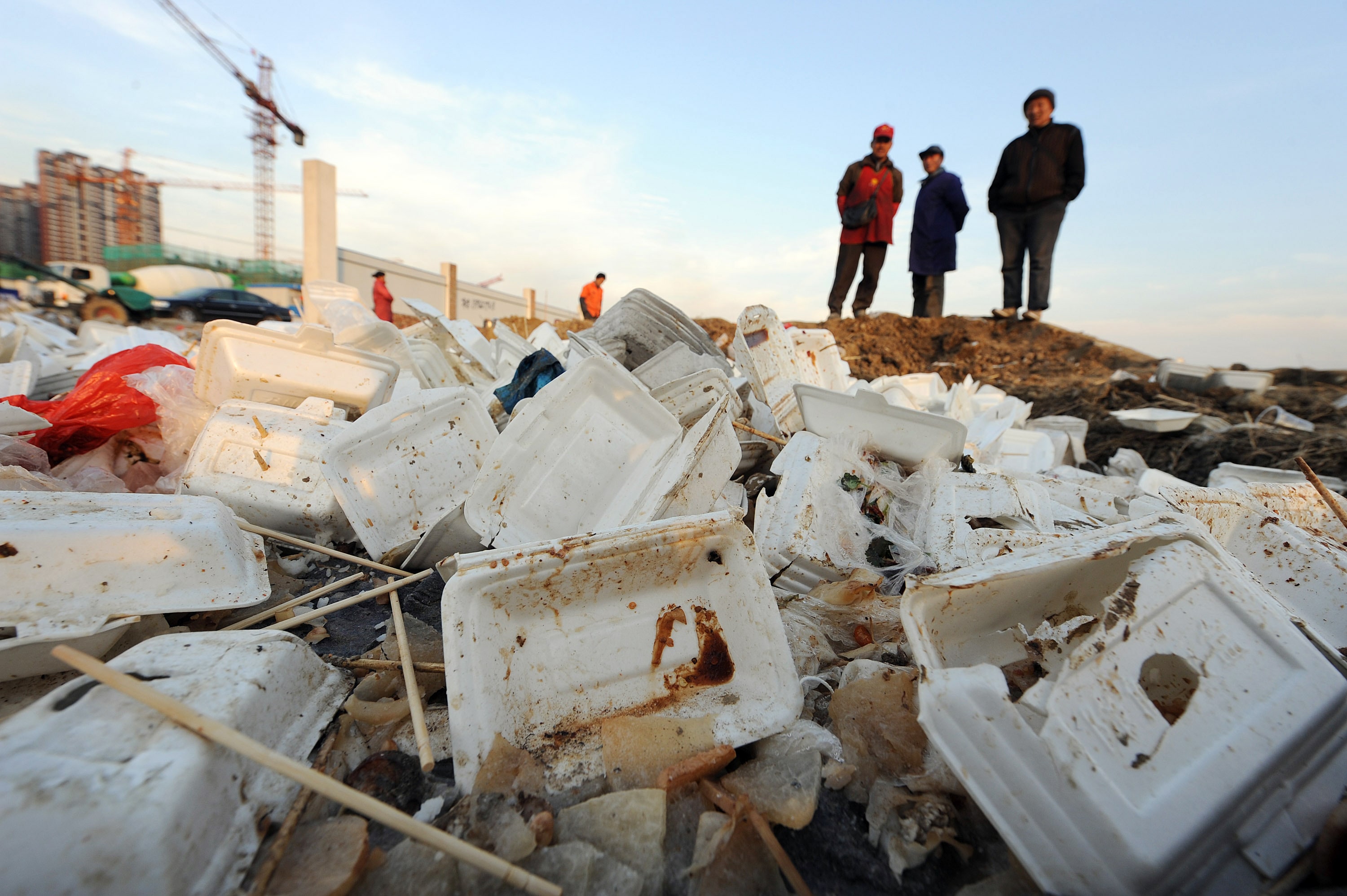
Disposable chopsticks, spoons and plates: these are the items that have propelled the Green Volunteer League of Chongquing, an environmental NGO, to file a lawsuit against China’s three biggest food delivery operators, Baidu, Meituan and Ele.me.
The lawsuit comes after several attempts by the Chinese government in previous years to introduce environmentally friendly initiatives to the country. Back in 2008, China banned the production and use of plastic bags of less than a 0.25mm thickness.
However, Yue Caixuan of the China Zero Waste Alliance recognises that the majority of the population have not taken well to the initiative, stating, “the policy led to a misinterpretation among the public that the government had come up with another way of collecting money”.
As online shopping and food delivery grows in popularity throughout the country, and on the continent as a whole, the effects of mounting waste from these services is sparking the push for more effective policies from the government towards white pollution.
Food delivery dynamo
The rise of food delivery has correlated with the modernisation of China’s finance and manufacturing industries. As business centres and complexes continue to pop-up across the country, more and more city-based workers are seeking an easy bite-to-eat at lunchtimes.
Robert Mang FCSI of Dishes Company Ltd in Hong Kong believes that development is key to understanding the success of food delivery operators, saying, “the popularity is due to the developing mode of those new city centres.”
“There are insufficient restaurants to feed hundreds or even thousands of white collars during lunch time. Before, staff would bring their own lunch box in reusable containers. Now, because their income has increased a lot, they are going out for lunch or can order it in,” explains Mang.
Associate member FCSI Michael Lau of Singapore-based Pro-Kit & Project Management has witnessed the development of the food delivery industry over the past decade.
“I tried the delivery service 10 years ago, in an old village in Guangzhou,” says Lau. “It was convenient and considered an extra service to their customers. It was also a business strategy to maintain customers.”
“Now, due to e-commerce in recent years integrating with delivery, such a service is not only convenient, but also to provide more varieties of food selection from the ease of your mobile device,” he explains.
The integration of e-commerce and food delivery is most clearly seen in online giant Alibaba’s ownership of Ele.me. This past month, it has emerged that Ele.me is soon to acquire rival delivery service Baidu, strengthening the e-commerce empire.
Packaging problems
Rising deliveries mean rising waste. Estimations suggest that 19.5 million pairs of chopsticks are dispatched everyday with orders made through Meituan alone, with daily orders for the delivery industry as a whole rising to nearly 20mil per day.
“As a whole, it is difficult to make the food delivery industry environmentally friendly,” Lau goes onto explain. Due to the need for disposable packaging to transport food, the food delivery service inherently produces a large amount of white pollution.
Due to the function of a food-delivery operator as a service standing between the food service operator and the customer, operators such as Ele.me and Baidu usually use the packaging and utensils that the restaurants provide.
“It is not easy to convince a restaurant owner to change the way they pack and brand their food,” says Lau.
Mang cites the strategies of other countries experiencing the same rising trends in food delivery, “In South Korea, the food delivery service is also very popular, but they do it like room service. They deliver food items in containers on trays before collecting them back after the customer finishes the meal.”
Making an effort
While the previous efforts of the Chinese government to cut waste may have gone largely unrealised, Mang recognises that responsibility does not rest solely on state officials for cutting down pollution.
“The Chinese government is very concerned about the environment so I think the food delivery industry will also come out with new policies to cooperate,” says Mang.
He continues, “However, it really depends on the consumer’s mind set. Protecting the environment is not only the responsibility of the government or the industry, but it’s everyone’s responsibility.”
Ultimately, for both Mang and Lau, it seems that the overriding obstacle to lessening waste levels lies in the attitudes of the wider population.
“Much more effort needs to be put into educating the consumers about being environmentally friendly. Action taken should target the younger generation,” says Lau.
Mang and Lau also agree on the difficult logistics involved in educating such a large nation, with Mang saying, “China is still a developing country. I think this is fair enough as the population is so big. It is not an easy task!”
“There could be a possible long-term solution,” suggests Lau. “Personally, I think the solution to white pollution can be more creative. In Singapore, we have a company that designs and produces disposable packaging products that can be recycled.”
In light of the Green Volunteer League’s lawsuit, Meituan has pledged to allow customers to choose non-plastic packaging, and whether or not they have disposable chopsticks and spoons supplied with their orders. Equally, Ele.me has stated that it would allow its partner restaurants the option of switching to environmentally friendly packaging provided by the company themselves.
Emily Lewis
